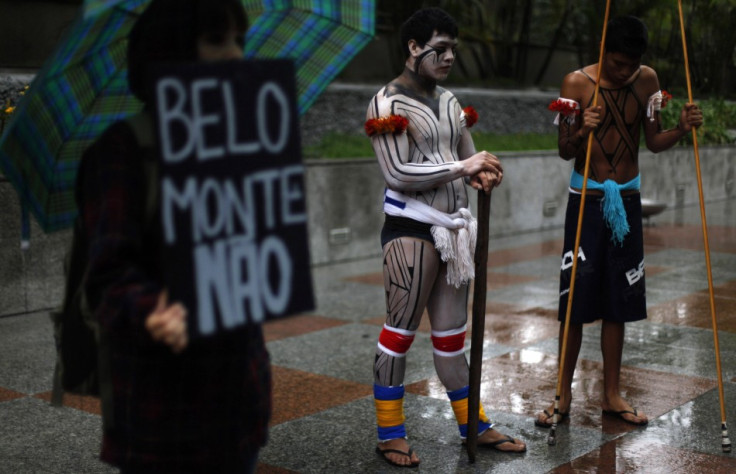Young Indigenous activists are fighting the climate crisis
To commemorate International Day of the World's Indigenous Peoples, young Indigenous Peoples are engaging in climate action, human rights and cultural conservation.

There are an estimated 476 million Indigenous individuals, spread across 90 nations that inhabit our world.
Although Indigenous People make up less than five per cent of the global population, they bear the weight of economic disparity and represent 15 per cent of the world's poorest people. Indigenous people all across the globe are most affected by climate change, according to a report by Health Canada.
The report, named Health of Canadians in a Changing Climate said: "Natural hazards, coupled with unpredictable and extreme weather events, can result in temporary or long-term evacuations from traditional territories, in addition to greater risk of injury and death from accidents while out on the land."
The report states that Indigenous people are "uniquely sensitive" to the impacts of weather extremes, "given their close relationships to land, waters, animals, plants and natural resources; tendency to live in geographic areas undergoing rapid climate change".
The Indigenous communities encompass a huge array of 5,000 different cultures and are the primary speakers of the majority of the world's 7,000 languages.
To commemorate the International Day of the World's Indigenous Peoples, young Indigenous Peoples are engaging in climate action, human rights and cultural conservation.
The UN Secretary-General Antonio Guterres declared that the Indigenous youth are "leaders in the global climate action movement. They advocate justice and equality, celebrate their cultures, advance human rights and raise awareness of Indigenous history and issues around the world".
Currently, Indigenous Peoples protect around 80 per cent of the biodiversity left in the world.
Honoring the Guardians of our Earth On #IndigenousPeoplesDay, let's celebrate the wisdom and strength of Indigenous Peoples worldwide 🌍. Together, we can combat climate change and protect biodiversity by supporting their causes. There is no future without Indigenous Peoples. pic.twitter.com/PVIqqXEIoV
— Global Alliance of Territorial Communities (@globalalliancet) August 9, 2023
Considering around 73 per cent of Indigenous Peoples live in rural areas with limited access to healthcare, the communities tend to experience a 4.4-year lower life expectancy rate in comparison to the general US population – says the National Institutes of Health.
Hindou Oumarou Ibrahim, an environmental Indigenous activist connected to nomadic pastoralist communities in Chad, told reporters: "What the scientists are telling them [the authorities], they are not listening. What the Indigenous peoples are telling them for so many years, they are not listening. So they must sit down, shut up and listen about this urgency."
Emmanuela Shinta, who belongs to the Dayak Indigenous community called for the government to "stop and take action". The young activist also said: "This is not the time for concept and theory. We can have thousands of webinars but cannot save one inch of the forest."
Charitie Ropati, a Yup'ik and Samoan land protector who is from a region near the Kuskokwim River in Southwest Alaska, emphasised the urgent need for climate crisis reparations.
She said: "The reason why climate change exists is because, you know, colonialism and capitalism go hand in hand. But when you think of the land as a commodity, as something that can be bought and as something that isn't sacred, this leads to rising CO2 emissions."
Speaking of the environmental activism that Greta Thunberg has participated in, Charitie Ropati concluded: "Greta is amazing, but white, cis, settler voices are centred whenever we have conversations about climate change."
Nina Gualinga, an Indigenous activist in the central south of the Ecuadorian Amazon, also urged the authorities across the globe to focus on how climate change is affecting Indigenous Peoples.
Speaking of her community, Gualinga said: "In our language, there is no word for nature because we are nature."
Gualinga continued to recognise that in her community "we understand that everything that we need, comes from the land itself. Food, medicine, even mental health. That's exactly why Indigenous voices are extremely important at the Cop for example".
The young Indigenous Activist concluded by saying: "I can assure you that Indigenous Peoples have done more than any government in the world, in the fight against climate change."
© Copyright IBTimes 2025. All rights reserved.






















